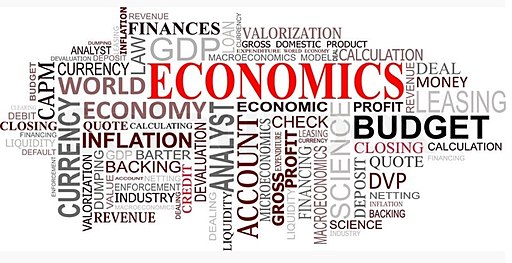Liberty Matters
Expectations and Predictability
 Peter Lewin raises an excellent point when he says that it is important to specify the content of expectations. "[W]e should ask: expectations of what?" (Lewin, "Thoughts on Equilibrium…"). At the most general level, economic agents are concerned with institutions of one sort or another and with the market behavior of other agents.
Peter Lewin raises an excellent point when he says that it is important to specify the content of expectations. "[W]e should ask: expectations of what?" (Lewin, "Thoughts on Equilibrium…"). At the most general level, economic agents are concerned with institutions of one sort or another and with the market behavior of other agents.1. What is the certainty of institutions? This is a complex subject but it is necessary to dispel some misconceptions. We are not or should not be thinking of fixed rules so much as hierarchies of rules with some degree of fixity or permanence. A clear example can be found in the traditional common law of negligence. Consider:
A unintentionally hits B. A is liable if A is negligent, otherwise not. If A is negligent but B is also negligent, then A is not liable. But if A had the "last, clear chance" of stopping the accident despite B's negligence, then A is liable.
We could continue this progression and we could find other such progressions in other areas. There is no single fixed rule if by that we mean that any one of the above propositions is dispositive no matter what the circumstances. What is relatively fixed is the hierarchy or the stages of the pleading. This hierarchy has the advantage of being adaptable but in a systematic way to the emergence of new facts.
2. The market behavior of other agents. We know that consumers do not always behave unpredictably. The aggregate demand for orange juice is stable over significant periods of time. In other cases, even with the development of new products, the implicit demand for certain attributes is fairly constant so that manufacturers will know, within some limits, what the demand will be for a small alteration in the product they have been selling.
It is important in this discussion to make clear that, for example, neither Henri Bergson (nor Alfred North Whitehead nor William James) thought that every human decision was a totally free, creative and unpredictable act. Lachmann may not have been clear on this. We should be.
Events can be broken down into many aspects and so too can predictions of events. People will buy orange juice but they may shift unexpectedly to pulp heavy from no pulp. People may buy the new i-Phone but may unexpectedly complain about a new feature thereby conveying information to manufacturers. Even with respect to the law, subtle changes may enter into the assignment of liability. For example, small negligence on the part of victims may be ignored and recovery allowed.
And yet, of course, those big unpredictabilities may dominate – sometimes due to endogenous cascades of errors or to uncertainty generated by bad policy decisions. The latter may be unpredictable decisions by what Roger Koppl has called "big players." They may also be accommodative interest-rate policies that encourage people to take on unreasonable risks.
The key to understanding what is going on is, of course, empirical evidence. This is what Lachmann was arguing for when he said that there are different kinds of markets. There are also given markets under different circumstances. Thus, there is no easy a priori way to determine how markets will function at the level of even intermediate detail. We cannot say, for example, that the market process will never exacerbate the errors entrepreneurs make. We may or may not doubt that this is the case in a particular situation but we will have to adduce evidence. We may have our presumptions but Lachmann's message is to go beyond that.
Copyright and Fair Use Statement
“Liberty Matters” is the copyright of Liberty Fund, Inc. This material is put on line to further the educational goals of Liberty Fund, Inc. These essays and responses may be quoted and otherwise used under “fair use” provisions for educational and academic purposes. To reprint these essays in course booklets requires the prior permission of Liberty Fund, Inc. Please contact oll@libertyfund.org if you have any questions.